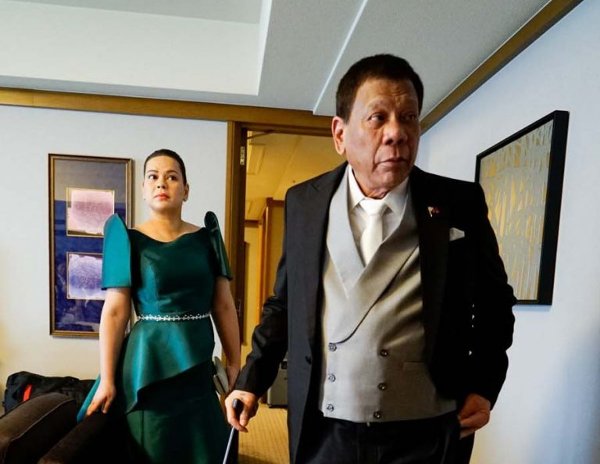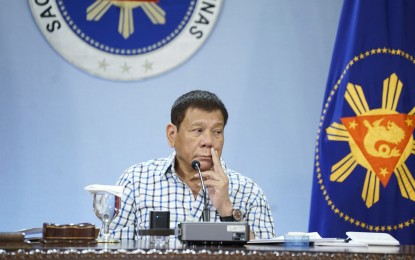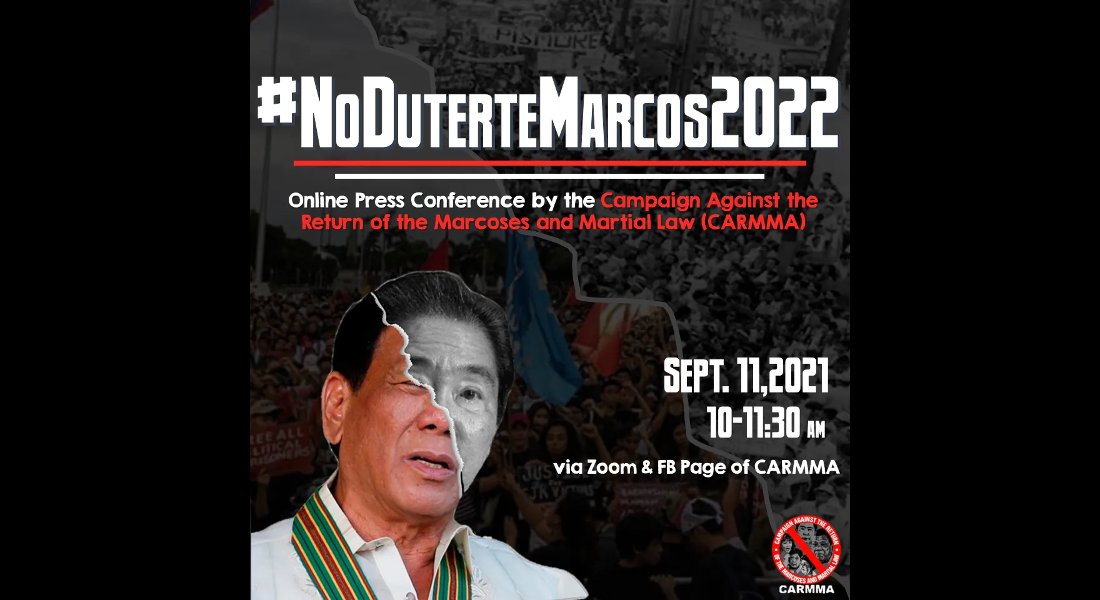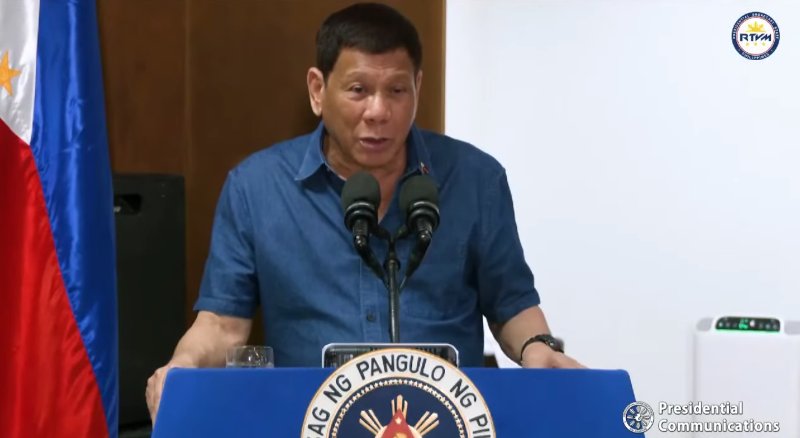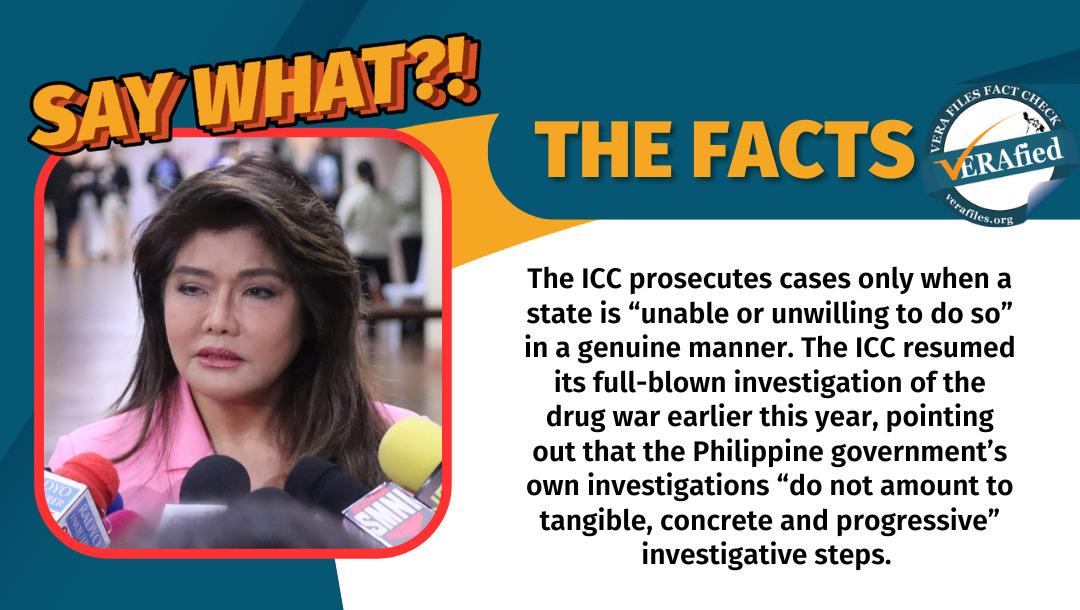The political circus in the past few days, involving President Rodrigo Duterte’s family and their allies, showed how selfish interests obscure whatever good intentions they may have in seeking public office and how low they regard voters.
This should give the next administration enough reason to make electoral reforms a priority for legislation.
But if they win the elections, we’ll probably see no end to similar situations when people are left watching from the sidelines how political families and their accomplices wrestle for power, unless they wake up one day wanting to pursue genuine reforms for the next generations.
Recent events, however, have worsened the Dutertes’ credibility problem. In 2016, they won the election on promises of change. They promised good governance, eradication of corruption in the bureaucracy, an end to the drug problem, among many other reforms. It’s 2021 and what we’ve seen so far are changes for the worse.
Even in the last five years, the president has contradicted himself countless times. Strangely, his popularity rating in surveys remain high, although recent polls show a declining trend. According to the Social Weather Stations, Duterte’s net satisfaction rating dropped 10 points, from plus 62% last June to plus 52% in September and substantially lower than his best satisfaction rating of 84% in November last year.
A year ago, Duterte issued a hard-line warning to corrupt government officials, saying they would be forced to “eat money in front of [him]” if they are found to have been involved in corrupt practices. At the time, the P15-billion fraud at the Philippine Health Insurance Corp. and the so-called pastillas scam, also involving billions of pesos, at the Bureau of Immigration were hot in the news.
In the last few months, Duterte shifted gears, training his guns on senators who were pursuing an investigation of the P8.9-billion deal between Pharmally Pharmaceutical Corp. and the Procurement Service-Department of Budget and Management. His former economic adviser Michael Yang and even Sen. Christopher Lawrence “Bong” Go, have been implicated in the questionable transactions involving the supply of protective equipment against the coronavirus disease 2019 (COVID-19).
The turnarounds involved not only policies but also their political posturing for the 2022 elections. Last Saturday’s developments showed clear signs of indecision and selfish motives overtaking whatever intentions they have for the public good, if they have any.
The public may witness more surprises today, Monday, the last day for substitution of candidates for the May 9, 2022 elections. Will Duterte really file his certificate of candidacy (CoC) for vice president? It’s just more than a month since he declared that he was retiring from politics and ditching his party’s endorsement for him to be the running mate of presidential aspirant Go, his longtime aide, in deference to an “overwhelming sentiment of the Filipinos” that he was not qualified for the position.
On the day he said he was retiring from politics, Duterte accompanied Go to the Comelec in filing his CoC for vice president and, at the same time, said in an interview that “Sara-Go na,” indicating that his daughter would be the administration standard-bearer.
A few hours after Duterte-Carpio filed her COC for vice president last Saturday, the president again accompanied Go to the Comelec in filing his candidacy papers for president under the Pederalismo ng Dugong Dakilang Samahan (PDDS), a political party led by senatorial aspirant Greco Belgica.
Go substituted for Belgica, the original PDDS standard bearer. The senator also withdrew his candidacy for vice president under the PDP-Laban faction led by Energy Secretary Alfonso Cusi.
Before leaving the Comelec, Communications Secretary Martin Andanar announced that the president would go back at the Comelec to file his COC as vice-presidential runningmate of Go.
If Duterte indeed runs for vice president, he will be pitted against his daughter, Davao City Mayor Sara Duterte-Carpio who, in a span of three days last week, withdrew her candidacy for reelection as Davao City mayor, left the party she founded in 2018, jumped ship to the Lakas-Christian Muslim Democrats upon the prodding of former president Gloria Macapagal-Arroyo and her political lieutenants and filed her candidacy for vice president.
What are the compromises in all of these dealings and last-minute switching of alliances? The voters are left in the dark.
The incidents also show a serious problem within the Duterte family. For sure, this is not a pleasant example to the voters, most of whom belong to the younger generation, the country’s future leaders.
On Sunday, Duterte said he was displeased with his daughter’s decision to settle for a “lower position” when she could have gunned for the presidency given her top ranking in the surveys for preferred presidential bets.
He admitted that he was kept in the dark regarding Duterte-Carpio’s plans. “I’m sure ‘yung pagtakbo ni Sara, ay desisyon nila Bongbong ‘yun (I’m sure this run of Sara is a decision of Bongbong’s camp),” the president said, referring to former senator Ferdinand “Bongbong” Marcos Jr. who is running for president under Partido Federal ng Pilipinas.
Meanwhile, the other contenders for the country’s top positions may be cheering from the sidelines as they keenly watch the internal squabbles within the political forces in the administration. Still, the voters are left out, speculating on the next scene in the political circus.
Lawyer Luie Guia, a retired commissioner of the Commission on Elections (Comelec) and advocate of electoral reforms, has always said that elections should be about the voters. In reality though, politicians always call attention to themselves, be they in good or bad light, keeping the public either amused or infuriated with antics they seem to never run out of.
If we keep electing candidates who skirt around the laws and switch positions for their personal and partisan convenience, we will continue to be trapped in economic and social difficulties that are principally due to the defective political structure and system that we have.
According to Guia, among the important reforms that need urgent attention are the abuse and misuse of candidate substitution, unregulated online and social media advertising, and the legislative hurdles for online voting. These require a thorough review and updating of the “antiquated” Omnibus Election Code of 1985.
But because of the domination of Congress by the political families and vested-interest groups, the Comelec’s efforts dating back to 1993 for amendments to be made to the Election Code, including a provision for a certain flexibility to adopt new technology and additional restrictions for the substitution of candidates, have been unsuccessful.
Electoral reforms are necessary to fuel social and economic reforms but, as Guia said, these “usually do not get much attention since it is not a ‘sexy’ topic.”
Because the Comelec could not get its proposed electoral reforms hurdle through the legislative mill, perhaps it’s about time the poll body became more assertive and meticulous in screening the qualifications of candidates to make sure that the voters will be left to choose not the lesser evil but be offered a choice among only those with genuine intentions for the public good.
We all have to take part in instituting reforms, starting from a conscientious exercise of our right to vote for selfless candidates. We should not leave the country and the future of the next generations in the hands of politicians who decide at the last minute on the basis of personal and partisan convenience and interest.
The views in this column are those of the author and do not necessarily reflect the views of VERA Files.
This column also appeared in The Manila Times.
